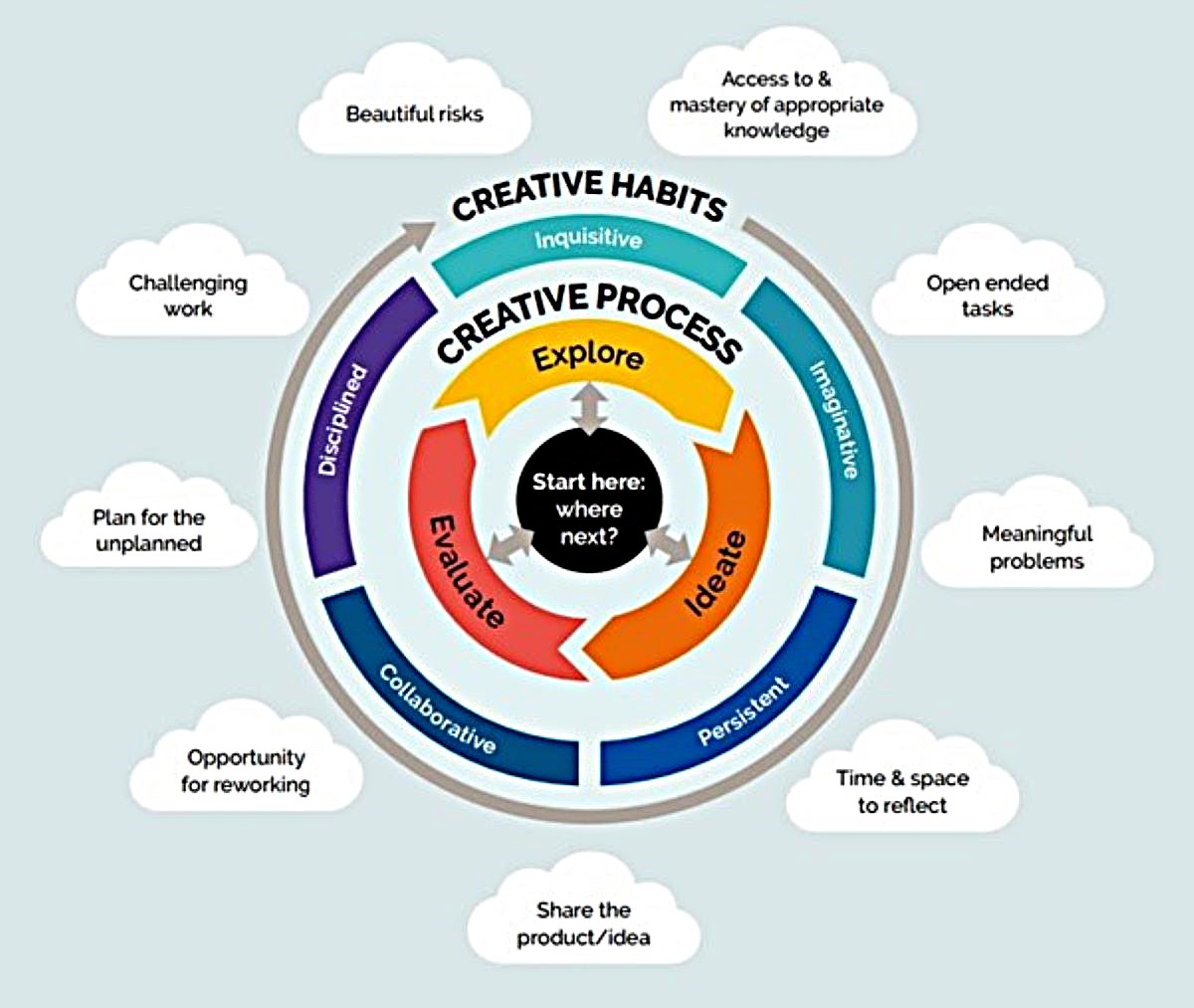
Academics at the University of Winchester have developed a ‘Creativity Navigator’ to help teachers to plan and teach in ways that inspire creative thinking.
The work behind the tool is outlined in a new paper published online by the Journal of Creative Behavior.
It comes out of research by a Creativity Collaborative, funded by Arts Council England and Freelands Foundation, made up of Winchester academics working with 16 primary schools including those in the Winchester Academy Trust.
Creative thinking equips young people to respond flexibly to the everyday challenges of their lives and is increasingly highly valued by employers.
Over the past three years, the Collaborative have worked with from the 16 schools and have collected data from 3,000 pupils.
A key outcome of this work is the Creativity Navigator, which helps teachers develop lessons that meet curriculum learning goals but also give pupils the chance to apply their learning flexibly and to tackle novel problems and tasks in creative ways.
The Navigator emphasises that creativity can be a planned-for process, that follows a typical sequence of explore – ideate – evaluate, but that this sequence can be varied.
Tasks need to be personally meaningful, challenging, and open-ended, with children having autonomy over aspects of their learning.

Professor Paul Sowden (pictured) from the University’s Department of Psychology, who leads the Collaborative’s research, said: “Importantly, the Creativity Navigator was co-developed by academics and teachers to ensure that it is both founded on research and works in the school classroom.”
Many teachers taking part in the project said that they now had more confidence to establish classroom climates that support creativity and where children are “confident to fail,” “willing to take risks in their learning,” and to “put up with that uncertainty, to have a go.”
There was also an acknowledgement from teachers that creativity should be the ‘golden thread’ running through all lessons and subjects because it enhances learning, problem solving and wellbeing, improving life chances and preparing pupils for an uncertain future.

Published alongside the academic paper is a guide, which includes case examples of innovative classroom projects
These included:
The Winchester team’s Journal paper concludes: “The Creativity Navigator provided teachers with a set of research-informed principles, embedded within the framework in a way that aligned with established teaching practice. This empowered teachers to use their expertise to foster learning behaviours that support a creative process in the classroom.”
Professor Sowden hopes the Creativity Navigator can form the basis of a professional learning package for teachers.
The Winchester Creative Collaborative is one of eight across the UK. The results of their work are currently being collated by Durham University before being passed onto the Arts Council who will publish a report on the impact of the entire project later this year.
Researchers at Winchester are now turning their focus on how these positive impacts on teachers relate to impacts on pupils, including their creativity and learning.
Back to media centre